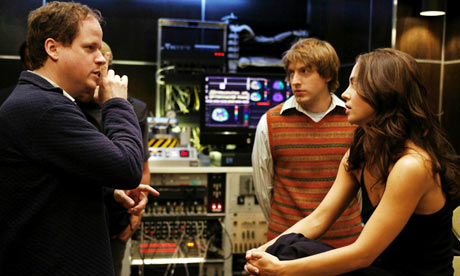
The history of micro-budget mainstream movies is a chequered one: for every Blair Witch Project there's a Birdemic: Shock and Terror, the famously inept 2010 homage to Hitchcock's The Birds which cost just $10,000 to make and featured horror scenes in which iffy CGI avians appeared to have been glued randomly onto the screen. The key to making a good film without spending much money seems to be in the scale: the first Paranormal Activity ($15,000) worked so brilliantly precisely because the major action utilised just a single camera setup, while Kevin Smith's Clerks ($27,000) was so tightly-focused on two adjacent New Jersey stores that one wondered where the money actually went.
Joss Whedon's forthcoming adaptation of Shakespeare's Much Ado About Nothing looks, at first glance, like a pretty grand project. It's rare that the Bard's works find their way onto the big screen without millions being lavished on expensive location shoots, period costumes and A-list actors. Kenneth Branagh's 1993 take on the play was pretty cheap at just £8m – you can tell because there was clearly no money left over for to pay Keanu Reeves's accent coach. Michael Radford's The Merchant of Venice cost a respectable $30m in 2004.
Whedon hasn't revealed quite how much he spent on his latest film, but given it was shot in just 12 days on location at his Santa Monica home during a break from filming The Avengers, with a cast of Whedon regulars and in black and white, one suspects there will be few tears at the film-maker's local branch of Bank of America. A press release put out through Whedon's website speaks of "hilariously miniature paycheques" and a "DIY ethos". It all sounds delightfully distant from the usual Hollywood cash carousel.
Whedon has long been fond of hosting Shakespeare evenings for thespian friends at his home, and the nuances of Much Ado About Nothing have apparently been refined through many hours of relaxed readings. Strange as it may seem, movie people apparently chill out by doing … more movies. The director has described the experience as the "the best vacation I've ever taken", adding: "I've never been so well rested and so well fed as I have on this movie."
With a mostly American cast and a modern day setting, Whedon's actors will presumably avoid wrestling, Keanu-style, with 16th-century English vowels. Most know each other well from having worked on shows such as Buffy the Vampire Slayer, Dollhouse and (web series) Dr Horrible's Sing-Along Blog. Amy Acker and Alexis Denisof play the unlikely lovers Beatrice and Benedick, while Firefly/Serenity's Nathan Fillion takes the role of the buffoonish chief of the citizen police, Dogberry. Whedon even roped in Clark Gregg, aka Agent Coulson from The Avengers, to play Leonato when Buffy's Anthony Head was forced to drop out at the last minute. The cast, Whedon says, "were all dedicated to the idea that this story bears retelling, that this dialogue is as fresh and intoxicating as any written, and that the joy of working on a passion project surrounded by dear friends, admired colleagues and an atmosphere of unabashed rapture far outweighs their hilariously miniature paychecks".
Much Ado was supremely suitable because it all takes place on Leonato's estate, and is one of the few Shakespeare plays to be written in prose. "It wasn't why I chose it," says Whedon. "But I do think it's one of the reasons why I love it. It's very modern. The language, the jokes, and the attitudes translate really, really easily. [The actors] do say the words as they're written [in the play], but they connect to a modern audience in a way that portions of the other comedies don't necessarily."
While Shakespeare on film can be a delight, it's always a rather different experience watching a play in the theatre, when the power of the words and the acting, rather than extravagant settings and flowery costumery, are to the fore. With luck, the circumstances of Much Ado About Nothing's creation may mimic the experience of watching a strong company of well-rehearsed players performing the play on a bare bones set up. The film will now head for the festival circuit in an attempt to drum up distribution cash, and could well be Whedon's third movie to be released in 2012, alongside The Avengers and long-gestating horror comedy Cabin in the Woods.
Might others now follow Whedon's example? Somehow it's hard to imagine Michael Bay shooting The Two Gentlemen of Verona at his Beverly Hills condo, but it's encouraging to think that at least one A-list Hollywood film-maker understands that great drama can be just as enticing as preposterous stunts and multimillion-dollar special effects.

